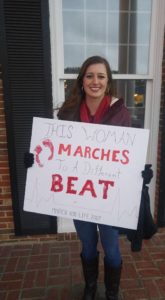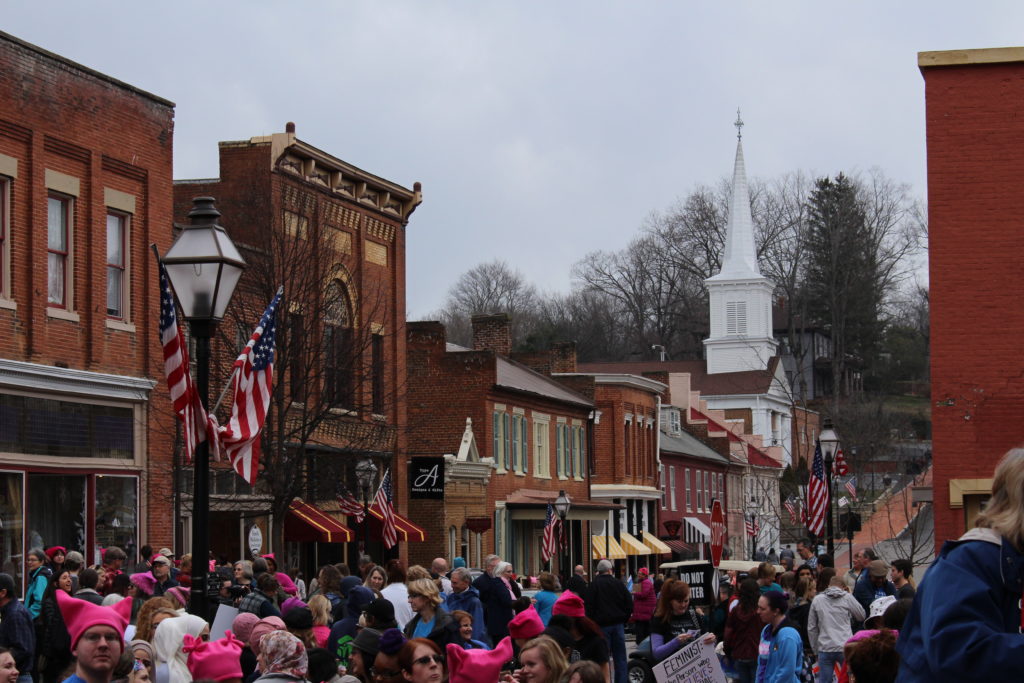Milligan students have found ways to get involved in politics though different marches and protests going on across the country.
On Jan. 21, the day after the inauguration, several Milligan students drove to Washington D.C., Asheville, and Jonesborough to participate in the Women’s March.

While 2.6 million participants marched in cities around the world, 500,000 of them marched in Washington.
Rachel Simmons, a junior, drove to D.C. to march with her friends. “The energy of the crowd was empowering, and it was really cool to be in a crowd with a bunch of other people that are passionate about the same things as me,” Simmons said.
The Women’s March followed Inauguration Day, and many people felt as though it was a protest of the new president.
Simmons said that, though some were protesting President Trump, his presidency was not the main reason people chose to march.
“I chose to march for equal rights for women and minorities, like the LGBTQ community, Muslims, people of color and refugees,” Simmons said. “I marched to stand up for those who can’t stand up for themselves…and to bring awareness to and shed a light on the hate, sexism and racism in this country.”
After the Women’s March, President Trump tweeted, “Watched protests yesterday but was under the impression that we just had an election! Why didn’t these people vote? Celebs hurt cause badly.”
Following the tweet, social media was flooded with reactions, including extremely large backlash coming from citizens who didn’t agree with the premise of the march.
Jan. 27, six days after the Women’s March, the March for Life was scheduled with a different agenda.
Brianna Synder, a freshman who attended a March for Life in Mountain City, Tenn., said the things she saw in the feminist movement and Women’s March persuaded her to march in favor of life.

“I think that the women’s rights movement has become more than (women’s equality) now, and it is beginning to infringe upon the rights of the unborn, which in no way is equal rights for all,” Snyder
said.
The March for Life is an annual pro-life march that did not draw as many people across the world as the Women’s March. However, it did have Vice President Pence speak at the event in Washington and had a tweet of approval from President Trump.
“I have a special burden for the unborn, and I feel like their God-given right to life is being threatened by a large part of our society,” Snyder said. “I want to raise awareness that Christians are not all out to judge and attack mothers in tough situations but to show Christ’s love by promoting more wholesome options than abortion such as adoption.”
While both Simmons and Snyder have very different views, they both marched to speak out for people who are unable to be heard. Both women also feel as though the country should unite, though they disagree what America should unite on.
When Simmons was asked about the pro-life march, she responded, “If you believe in something, you should stand up for it. If people are pro-life, then they should absolutely march.” She continued, “We can’t be like this forever. We can’t keep fighting and hating each other. I know it’s a far stretch, but I think what this country needs is a lot of love.”

